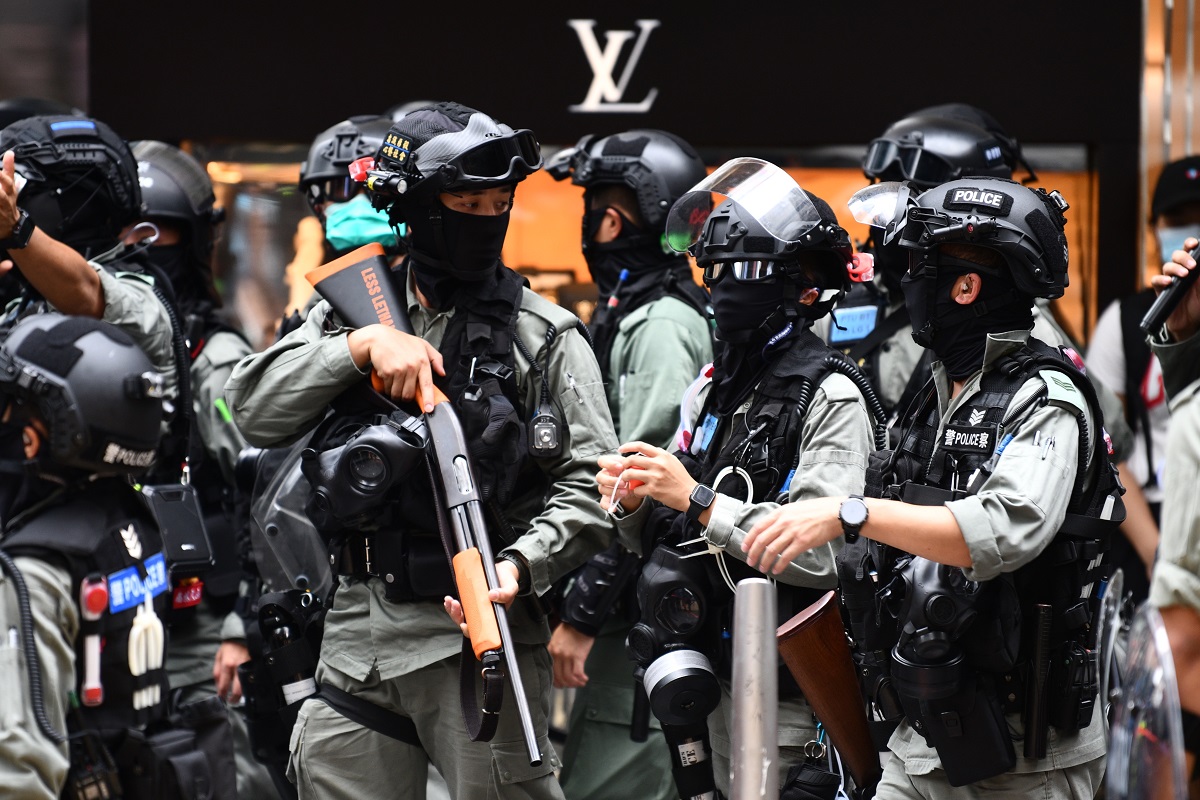President Donald Trump has found one reason after another to continue his tirade against China. The latest wave of verbal attacks came on May 29 when Trump decided to retaliate against China, following the passage of a national security law that fundamentally undermines Hong Kong’s autonomy.
Trump in his announcement said that going forward the United States will no longer grant Hong Kong special status on trade or in other areas and instead will apply the same restrictions as on other cities of mainland China. Trump also said that the United States will strip Hong Kong of the special policy measures on extradition, trade, travel and customs which it had enjoyed earlier.
Advertisement
Trump also hinted potential sanctions for some officials of the Hong Kong government. While Trump’s move was clearly aimed at the mainland Chinese government in Beijing, the primary victim of this escalation of tensions between Washington and Beijing is none other than Hong Kong and its people.
The actions of both Washington and Beijing have pushed the city to the edge. On the one hand, Hong Kong’s autonomy will shrink and the city’s civic liberty and political freedom will be curtailed. On the other hand, Hong Kong will lose preferential treatment from the United States.
And depending on the level of actions and counter actions and or global reactions, it can also potentially affect Hong Kong’s status as an international hub for global businesses and trade, as well as the internationalization of Hong Kong’s educational institutions.
In response to the Trump administration’s announcement, Hong Kong’s Security Minister John Lee on May 30 said, “I don’t think they will succeed in using any means to threaten the (Hong Kong) government, because we believe what we are doing is right.”
Hong Kong’s Justice Minister Teresa Cheng also said the basis for the Trump administration’s actions were wrong and argued that national security law is necessary for the former British colony. Whatever the justifications or arguments from Hong Kong’s administrators are, the city will never be the same again – especially in terms of civic liberty and political freedom – if and when the new law is implemented.
On May 28, the Chinese legislature or parliament called the National People’s Congress (NPC), in nearly a unanimous vote approved a resolution introducing a sweeping security legislation, which bans secession, subversion of state power, terrorism, foreign intervention and allows the Chinese state security agencies to operate in the city.
The resolution was voted against by only one legislator, while six others abstained and 2,878 voted in favor. The NPC’s standing committee will now draft the law, and it will be implemented upon promulgation by Hong Kong authorities bypassing the city’s legislature.
Given the position of the Hong Kong authorities, the promulgation and implementation of the new security law is just a matter of time. The law will significantly broaden Beijing’s power and authority over Hong Kong which had last year witnessed massive anti-government protests calling for greater democracy and more autonomy from mainland China.
While Beijing’s actions are short of a complete takeover or control of Hong Kong, it is an incremental or a gradual step towards the realisation of “one country, one system” from “one country, two systems.” On the other hand, the Trump administration’s actions, especially if Trump is re-elected in the November election, will have long-term damaging effects on Hong Kong and its people.
Trump had also said, “We will take action to revoke Hong Kong’s preferential treatment as a separate customs and travel territory from the rest of China” and that Washington will impose sanctions on individuals responsible for “smothering – absolutely smothering – Hong Kong’s freedom.”
The new Washington policy will not only affect Hong Kong’s business transactions and other economic activities; and Washington is likely to withdraw or downsize its business deals and reduce its overall presence in the city. Besides imposing travel sanctions on the city’s leaders, Washington could also restrict the number of Hong Kong people visiting the United States and viceversa, including regular tourists and or students and other professionals.
Washington’s policy will also further isolate the city in matters of democracy and human rights. This would mean that instead of Beijing gradually appreciating and adopting the open democratic system of Hong Kong, it could eventually introduce or impose a one-party system.
When the United Kingdom returned Hong Kong to China in 1997 under a “one country, two systems” arrangement, the city was guaranteed several freedoms including the right to protest and an independent judiciary, which people on the mainland do not enjoy.
Though it will still take some time for Washington to implement its new policies and for Beijing to introduce the new security law, it is, however, clear that Hong Kong has begun to take a different path and a new direction toward authoritarianism.
Given the heightened tensions between the two nations, it is unlikely that neither side will renege on its positions. The economic and geopolitical rivalry of the two most powerful countries of the 21st century have undoubtedly pushed Hong Kong and its people to the edge.
And it is Hong Kong’s people who will bear the brunt.
(The writer is Associate Professor, Assistant Dean and Executive Director at the Center for Southeast Asian Studies (CSEAS), Jindal School of International Affairs, O.P. Jindal Global University)











